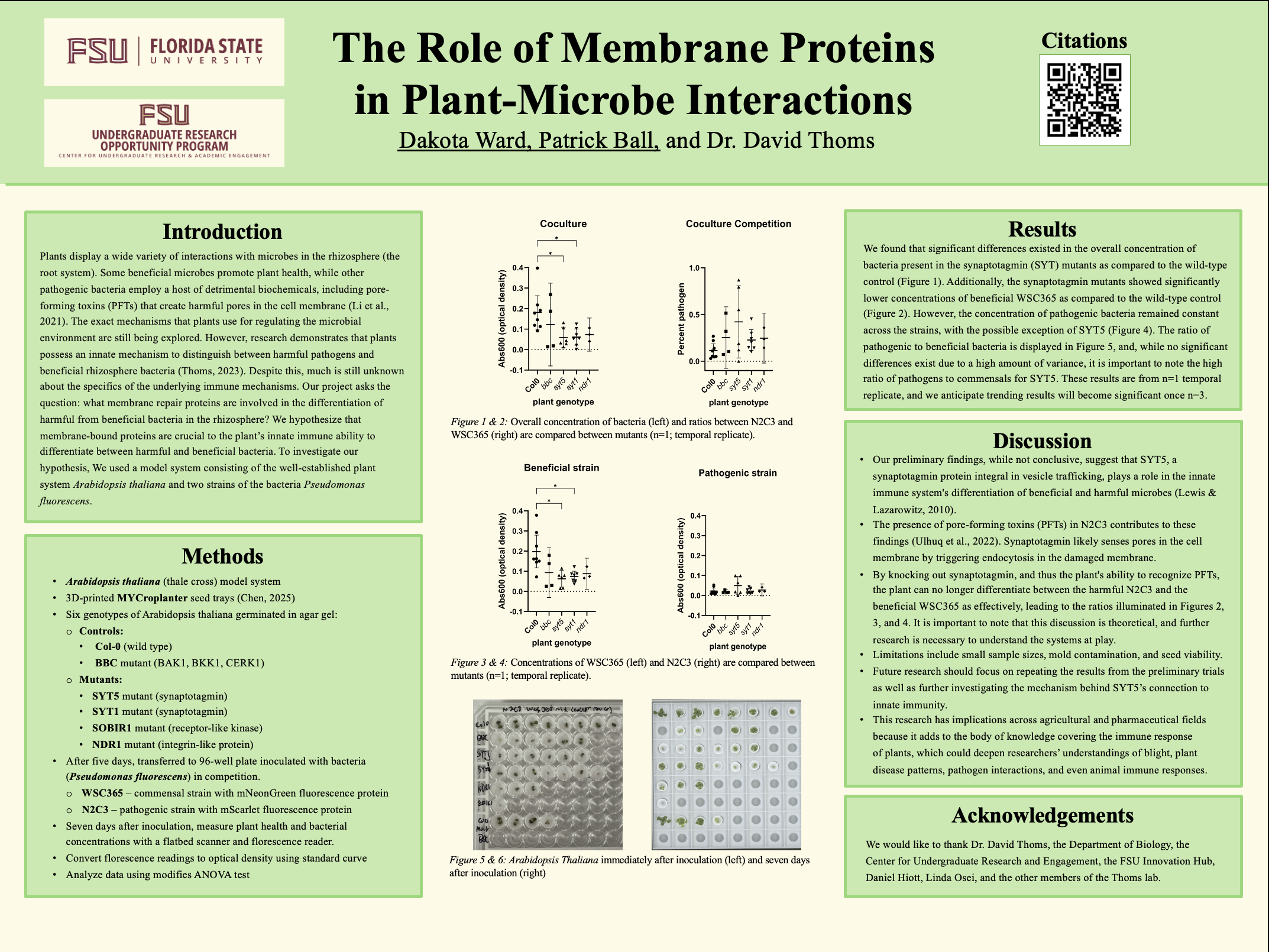Research Symposium
25th annual Undergraduate Research Symposium, April 1, 2025
Patrick Ball Poster Session 4: 3:00 pm - 4:00 pm/ Poster #245

BIO
Patrick Ball is a Biology Student and Presidential Scholar at Florida State University. He hopes to pursue graduate school with the goal of a research career. His research interests include infectious disease, cancer biology, and genetics. He serves as the Programming Director for the Student Council for Undergraduate Research and Creativity and is a member of the Alpha Chi Sigma Professional Chemistry Fraternity. Patrick grew up in Birmingham, AL, and in his free time he enjoys swimming, camping, hiking, and spending time with loved ones.
The Role of Membrane Proteins in Plant-Microbe Interactions
Authors: Patrick Ball, Dr. David ThomsStudent Major: Biological Science
Mentor: Dr. David Thoms
Mentor's Department: Biological Science Mentor's College: College of Arts and Sciences Co-Presenters: Dakota Ward
Abstract
Plants display a wide variety of interactions with microbes in the rhizosphere. Some beneficial microbes promote plant health, while pathogenic bacteria employ a host of detrimental biochemicals, including pore-forming toxins (PFTs), that create harmful pores in the cell membrane. The exact mechanisms that plants use for regulating the microbial environment are still being explored. However, research demonstrates that plants possess an innate mechanism to distinguish between harmful pathogens and beneficial rhizosphere bacteria. Despite this, much is still unknown about the specifics of the underlying immune mechanisms. Our project asks the question: what proteins are involved in the differentiation of harmful and beneficial bacteria in the rhizosphere? We hypothesize that membrane repair proteins are crucial to the plant’s innate immune ability to differentiate harmful and beneficial bacteria. To investigate our hypothesis, we used a model system consisting of the well-established plant system Arabidopsis thaliana and two strains of the bacteria Pseudomonas fluorescens: commensal WSC365 and pathogenic N2C3. Our preliminary results suggest that mutants with impaired Synaptotagmin-5, a membrane repair protein, may decrease the plant’s ability to differentiate harmful and beneficial bacteria. The low sample size and high variation in our data means that our results are not conclusive, so more trials should be run. However, these preliminary results are a promising indicator that Synaptotagmin-5 and the membrane repair process are involved in the plant’s innate immune response.
Keywords: Microbiology, Arabidopsis Thaliana, Plant, Immunology, Bacteria

